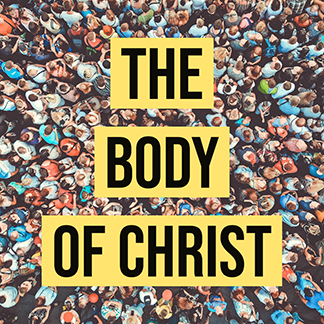By Jean Flannelly, SC
 Until the pandemic, I was able to boast, no claim, that for seventy-three years as a Catholic, I missed Sunday Mass, only three times. That’s saying that I missed Mass three times out of a possible three thousand, seven hundred ninety-six times. Pretty impressive! But I am not boasting—it’s more to make a point that gathering with the community for Sunday Liturgy was an important value for me.
Until the pandemic, I was able to boast, no claim, that for seventy-three years as a Catholic, I missed Sunday Mass, only three times. That’s saying that I missed Mass three times out of a possible three thousand, seven hundred ninety-six times. Pretty impressive! But I am not boasting—it’s more to make a point that gathering with the community for Sunday Liturgy was an important value for me.
The lockdowns have forced me, like many of us to find other ways to satisfy our needs for worship and communion in a faith community. Every day, via live stream, I joined the community of St. John’s Abbey in Collegeville, Minnesota, for Eucharistic Liturgy. They are no strangers to me, having prayed with them daily when I was in residence. I reckon that virtual participation is better than nothing, but it does raise questions about virtual versus real participation in a faith community.
I found that “zoning-out,” which often plagues us at in-person liturgy, is significantly increased in the virtual world. Then, there is the question of the meaning of virtual participation, which will not be addressed here. We have returned to our parish gatherings, which gives us another chance to think about what we have missed in the three to four-month time of deprivation.
I Iooked at my concrete situation: I am a member of a small rural parish where the people are friendly and welcoming. But I once again experienced a desire for a more prayerful celebration of the ritual that would invite us into the mystery. I also touched into my hunger for homilies that break open the scriptures shedding light on contemporary issues. I have not felt a need to rejoin this parish community for liturgy. I believe that the Risen Christ is present and nourishing me, us, all the time. So, St. John’s Abbey in Collegeville, Minnesota, does me just fine!
As I continued my ponderings, I realized that I would miss connecting with folks, especially those I have come to know and share with through the gatherings for Eucharistic Liturgy, Morning Prayer, Guided Mediation, Scripture Study, and Religious Education.
In a flash of insight, I realized I was forgetting an important and helpful distinction between the felt experience and the faith experience. The faith experience whether or not it is conscious awareness can only be accessed by putting on my “glasses” of Church teaching and Liturgical Theology.
From my description of the parish, it’s obvious that my felt experience of Eucharist very often leaves me frustrated and desiring more and better. Reflecting theologically, I saw the limited nature of my assessment. It was based on my felt experience.
A favorite question of mine for years has been, “What is it you think you are doing when you do Eucharist?” It’s a very good one that can lead us to more full, active and conscious participation. The flip side of this question—”What is it we think is happening when we do Eucharist?” —also needs to be asked. Herein lies the gold!
In doing Eucharist, the Risen Christ is present in his Body as we remember all that God has done and is doing, and we make present the perfect sacrifice of Christ to which we join our own dyings and risings. If we look at the Eucharist Prayer, our next action is to offer this perfect sacrifice to the Father; all of this is worship in spirit and in truth. God then responds to our offering by inviting us into communion. In the doing, we become church, our bonds of communion in the Body of Christ are renewed and deepened. I don’t see it, I don’t feel it, but it is happening. God is at work, silently and relentlessly doing the forging.
As others ponder their Eucharistic practice in this pandemic time, they may come to a different conclusion. But it has become crystal clear to me that my worship of God apart from the Eucharist is small potatoes and in no way can compare with the perfect worship of the Father that we do when we are gathered as his Body for Eucharist. Therefore, I know that I must join the community to do Eucharist, if I am truly to worship God and grow in my identity as a new creation, a disciple of Jesus Christ.

From the time you oversaw my research and writing of my senior thesis at Cathedral College, and from your shining example throughout the years, thank you for sharing these wonderful thoughts on Eucharist. I realize that your message is from last year, but I was thinking about you this weekend, and hope you are well. Peace! Steve Shay